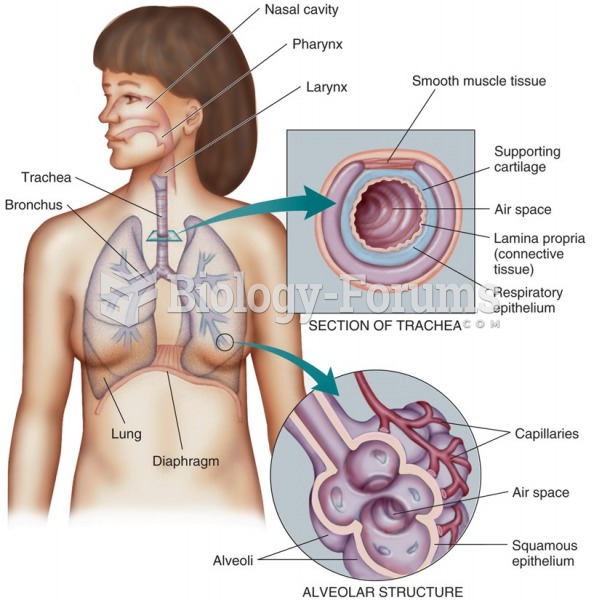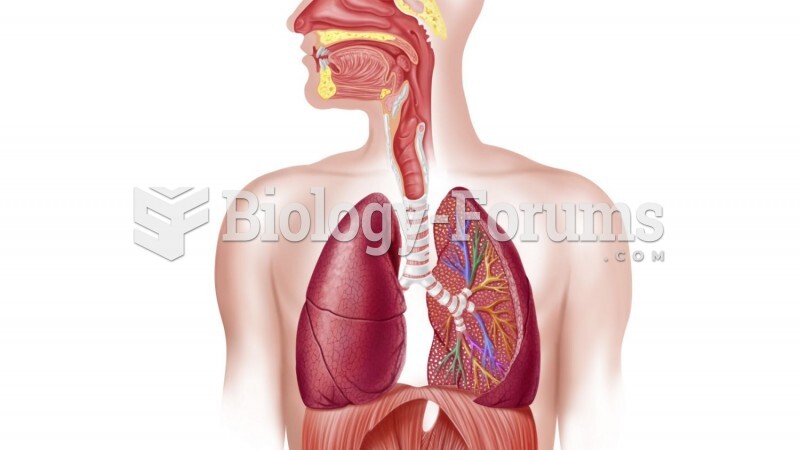|
|
|
The average older adult in the United States takes five prescription drugs per day. Half of these drugs contain a sedative. Alcohol should therefore be avoided by most senior citizens because of the dangerous interactions between alcohol and sedatives.
There are 60,000 miles of blood vessels in every adult human.
More than 150,000 Americans killed by cardiovascular disease are younger than the age of 65 years.
A good example of polar molecules can be understood when trying to make a cake. If water and oil are required, they will not mix together. If you put them into a measuring cup, the oil will rise to the top while the water remains on the bottom.
People about to have surgery must tell their health care providers about all supplements they take.







